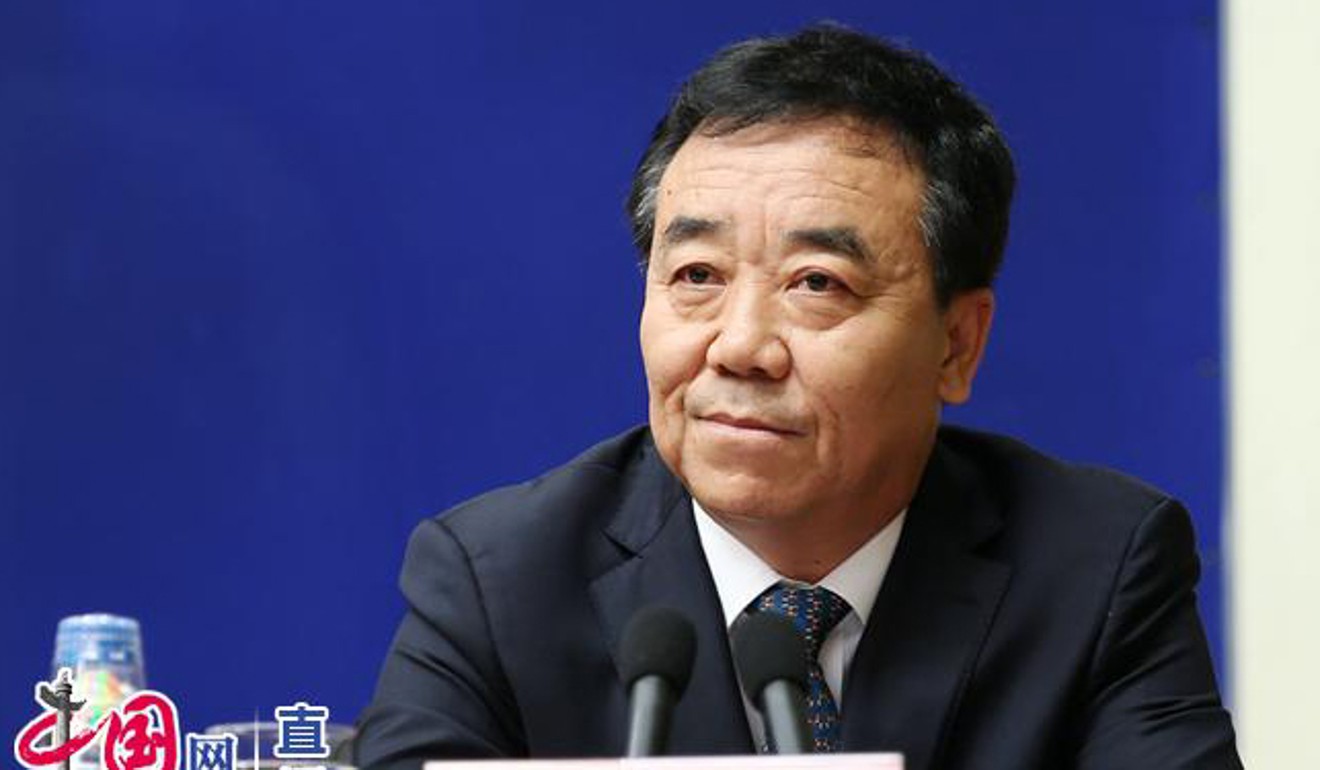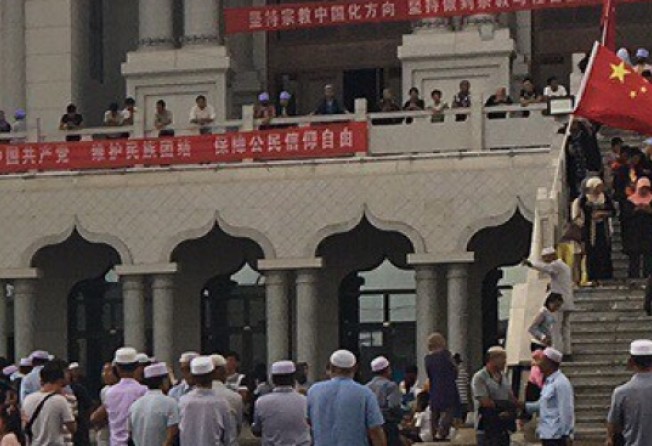
China’s Hui mosque protests blamed on ‘reckless’ local officials
The fate of Weizhou’s Grand Mosque remains unclear as calm returns after rare public protest against demolition

A rare public protest by thousands of Hui Muslims this month was caused by local officials’ recklessness, Chinese authorities said on Thursday, without settling concerns a large mosque in the northwestern region would be razed.
The governor of the region of Ningxia and a regional Communist Party official said tensions had died out in the city of Weizhou, where thousands protested in early August to prevent authorities from demolishing the towering Grand Mosque.
The protests were an unusually bold display of resistance against the party’s efforts to dictate how religion is practised.
“The reckless local government actions caused this incident,” said Bai Shangcheng, director general of the regional Communist Party committee’s United Front Work Department, which oversees religious groups, at a news conference in Beijing.
Local officials have been ordered to review the incident and “handle it properly and according to law,” Bai said.
“The situation overall is under control,” he said.
The Weizhou protest came as faith groups have seen their freedoms shrink as the government seeks to “Sinicize” religions by making the faithful prioritise allegiance to the officially atheist Communist Party.
Mosques and churches have been stripped of religious imagery and Tibetan children moved from Buddhist temples to schools.
The governor of Ningxia was out of the province when the protests erupted, Bai said, delaying an official response. On her return, officials held an emergency meeting, ordered the local government to review its actions, and spoke with the Weizhou community.
“Local people are satisfied with our explanation, contrary to what was reported by many media,” said Xian Hui, the governor, at the press conference. “They are in a good mood now and live a normal and peaceful life.”
The officials did not provide clear details on the fate of the mosque, an imposing white building that dwarfs the surrounding warren of brick and concrete homes.
Its architecture of four minarets and nine domes tipped with crescent moons would be at home anywhere in the Islamic world, save for the large red and yellow Chinese flags fluttering from the ramparts and the wide central staircase.
The city’s authorities were clearly nervous about the unrest, detaining Associated Press reporters, preventing them from conducting interviews at the mosque and, ultimately, chasing them out of Weizhou.

Despite the assurances of local calm, party official Bai said the Grand Mosque itself was still a problem.
He gave no details but the county disciplinary inspection commission said in May that Weizhou authorities had failed to properly inspect what it said was an illegal expansion in the construction of the Grand Mosque.
“This mosque is different from others. Its legality is controversial,” Bai said.